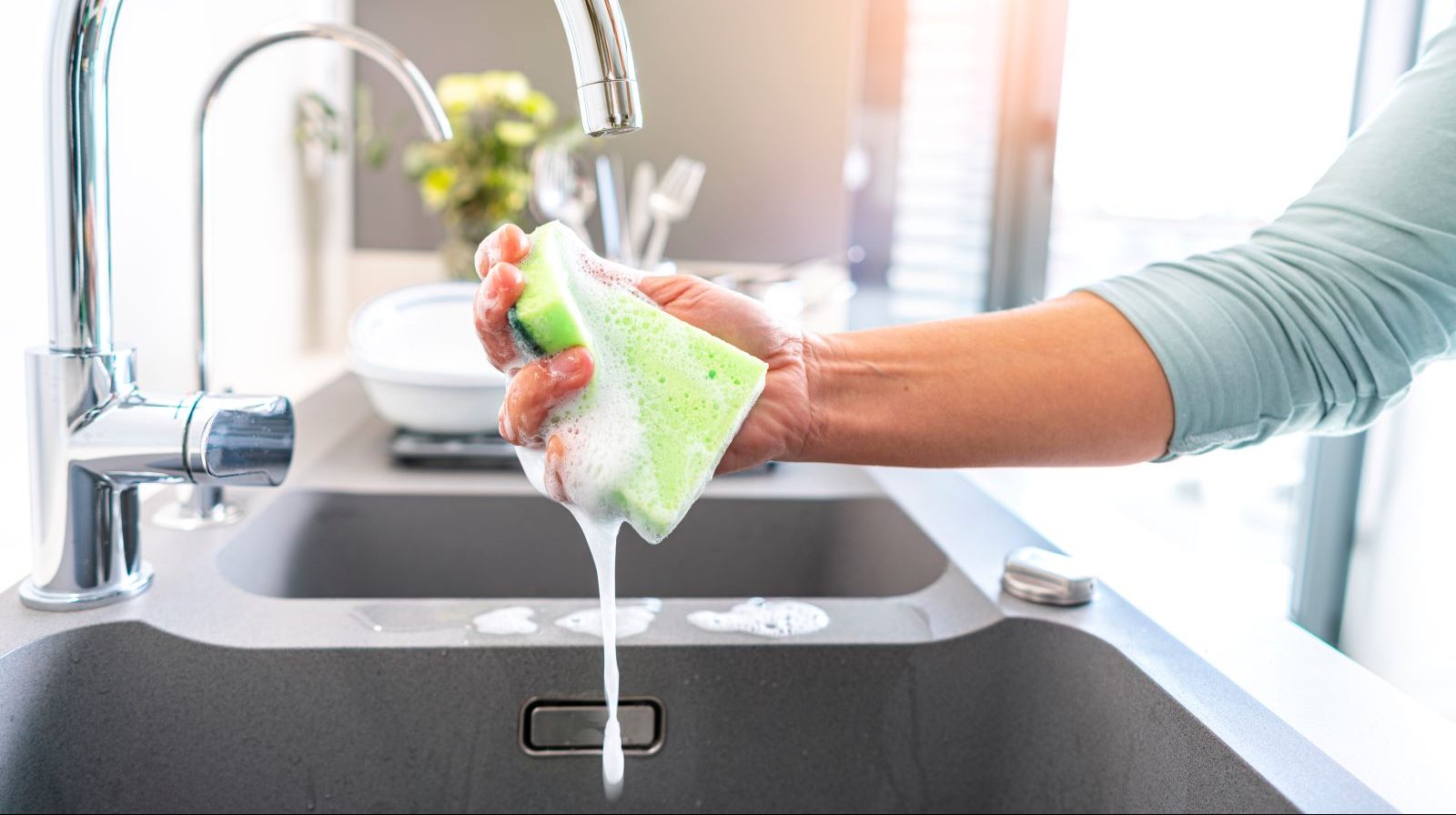<< Back
The Dirty Little Secret Inside Your Kitchen Sponge

June 09, 2022
Which is more bacteria-ridden in your house – the toilet or the sponge you use to wash the dishes?
A single kitchen sponge can harbor a higher number of bacteria than there are people on Earth, according to the authors of a study out of Norway published in last month’s Journal of Applied Microbiology. An earlier study in Germany found 362 different species of bacteria in sponges, and 45 billion bacteria per square centimeter – which means your kitchen sponge and your toilet are neck and neck in the race to be the grossest thing in your house.
“Salmonella and other bacteria grow and survive better in sponges than in brushes, the reason is that sponges in daily use never dry up,” the Norway study concluded. Kitchen brushes may be a more hygienic way to clean your dishes, it said.
While you may be tempted to torch your sponges in your backyard fire pit, there’s no need to panic, said Virginia Bieluch, MD, chief of the division of infectious diseases at The Hospital of Central Connecticut.
“It’s true bacteria grow and survive better in a moist environment than in a dry environment,” Bieluch said. “But most of these bacteria found on the sponges in everyday use were not harmful to people.”
The researchers collected kitchen sponges from 20 people living in Portugal, and 35 brushes and 14 sponges from people living in Norway. The sponges were all used for washing dishes, and most were used at least five to six times a week. No bacteria that could cause illness was found in the brushes or the sponges. However, overall bacteria levels were lower in used brushes than sponges.
It was when the researchers added salmonella to the sponges that they found that traditional methods of cleaning a sponge – such as running it through the dishwasher or microwaving it – failed to rid the sponge of the harmful bacteria. The salmonella did not thrive on kitchen brushes.
“While methods such as washing your sponge in warm soapy water followed by microwaving your wet sponge (as long as sponge does not contain metal and is microwave safe per the manufacturer) may help decrease the number of bacteria on your sponge, frequent replacement of your sponge is the best way to prevent spread of bacteria which have contaminated your sponge,” Bieluch said.
Study authors recommended a new sponge every two to three weeks.